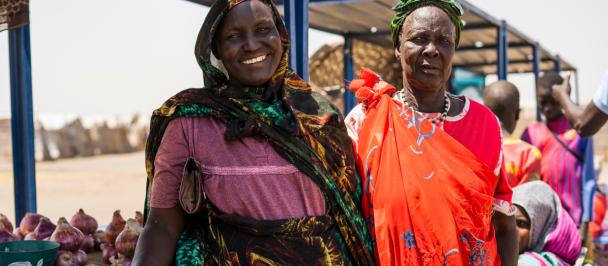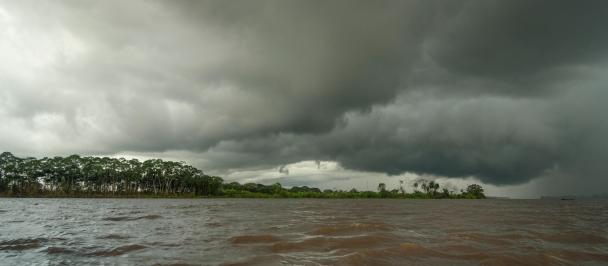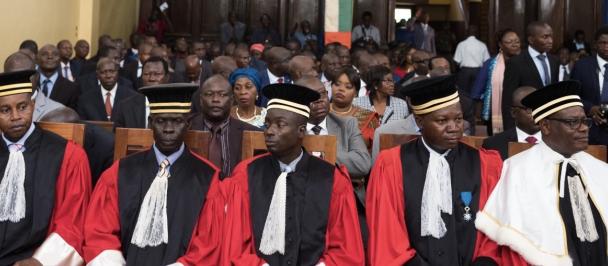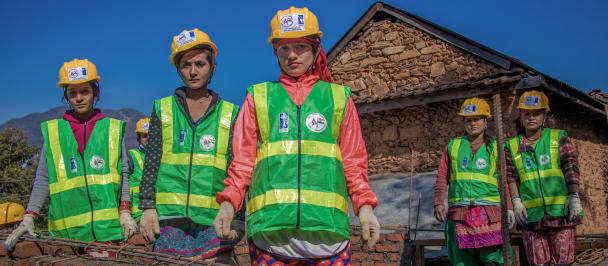Opening remarks at the G7+ ministerial meeting in Lisbon
G7+ Ministerial Meeting
June 26, 2019
Excellencies,
Distinguished Delegates and Guests,
Ladies and Gentlemen,
On behalf of the United Nations Development Programme, I would like to express my deepest appreciation for this opportunity to join my esteemed partners to deliver Opening Remarks. It is a great honour and we feel privileged to be here. I would also like to congratulate the g7+ Secretariat for the excellent organization of this important meeting.
The 2030 Agenda brings forward new development paradigms for the International Dialogue on Peacebuilding and Statebuilding. In addition, the Secretary-General of the United Nations puts prevention at the forefront of addressing the root causes and drivers of fragility and conflict. The UN’s Sustaining Peace agenda emphasizes the prevention of conflict and peace building - before, during and after conflict. The Secretary-General, in the Agenda for Humanity, called to transcend the humanitarian-development-peace divide, and to reduce humanitarian needs, risks and vulnerability.
These commitments are referenced in the Stockholm Declaration of 2016 which urged members of the International Dialogue on Peacebuilding and Statebuilding to make concerted political and financial efforts to implement the Sustainable Development Goals, in line with the New Deal principles.
In that context, let me first commend the efforts your governments have made to fast track commitments to promoting access to justice. Only last week your Ministers gathered in the Hague to share experiences on how to advance justice for all. The g7+ countries’ recognition of justice as an accelerator and a development goal was an important precursor of the “Goal 16+” concept and we, in UNDP, wholeheartedly support this aim.
According to the 2018 OECD States of Fragility Report, by 2030 more than 80% of the world’s extreme poor will live in countries affected by fragility and high levels of violence unless global action is taken. Development challenges are increasingly complex and require ever greater collaboration across sectors and partners to deliver impacts at scale and utilize limited resources efficiently. Fragility has become a major obstacle in reaching the SDGs. Poverty is tightly interlinked with fragility and conflict, and inequality is found to be a key driver of conflict. The achievement of Goal 16 is considered to be the key enabler and accelerator for the entire sustainable development agenda.
We commend the G7+ countries for continuing to be proactive in addressing the multiple dimensions of fragility. The world looks towards the strong leadership of g7+ countries to have the SDGs fully integrated and localised into National Development Strategies, and to ensure that they are conflict-sensitive. The priorities of these national development plans also need to be translated into national budgets that are results-based and tackle root causes of conflict.
Member States are calling for more coherent support from the UN development system for the implementation of the 2030 Agenda and SDGs. UNDP is called upon to lead as integrator to help countries address multidimensional and complex development challenges. UNDP thus promotes “whole-of-government” and “whole-of-society” responses, vital for transformative change.
UNDP has a field presence in all 20 g7+ countries. We have supported your nations with a wide set of programmes along the entire spectrum of the 2030 Agenda, be it on climate change, inclusive growth or governance.
UNDP is also a key implementor of the UN Peacebuilding Fund (PBF). In close collaboration with Governments, we are currently implementing an active portfolio of nearly $90 million across 14 g7+ countries. The largest portfolios are in Central African Republic, Somalia, Liberia and Cote d’Ivoire.
Excellencies, Ladies and Gentlemen, I would like to provide some example of UNDP’s support to g7+ countries.
Somalia spearheads integrated approaches in a fragile setting, through a recovery and resilience platform improving local economic resilience, financial management, and the use of data to help prevent droughts and famine. It’s a collaboration between the Government, UNDP, the World Bank, the EU, the private sector, investors and humanitarian actors.
In Central African Republic, UNDP is helping to strengthen core government functions for development effectiveness, to coordinate and implement over 130 development projects as part of achieving the SDGs.
In Yemen, we are working with the World Bank to complement humanitarian assistance with a longer-term approach that builds resilience and preserves human capital and livelihoods. It is currently the largest humanitarian crisis in the world, with 24 million people in desperate need with a fluctuating currency and rocketing prices. With a budget of now $400 million, the initiative operates in most parts of Yemen, keeps public services open, supports small businesses, pays farmers and fishermen, and helps millions of Yemenis earn money through cash-for-work programmes, even in the absence of functioning markets.
In Sierra Leone, UNDP supported a Development Finance Assessment to track financial flows for development priorities. We also supported the organization of the National Dialogue Conference on peace and social cohesion with the Ministry of Political Affairs.
UNDP also has a dedicated Facility for SDG Implementation in Fragile and Conflict-affected States, formerly called the New Deal Facility - that has supported g7+ countries for the past six years. UNDP is a believer in peer-learning and has supported fragile-to-fragile (f2f) cooperation.
Last November, we brought together ten g7+ countries, civil society and private sector representatives together in Freetown to share experiences, reflect collectively and think strategically on how the New Deal has supported the implementation of the 2030 Agenda. We have also brought technical expertise from Liberia to South Sudan, to help restore the basic functionality of the Ministry of Finance and Economic Planning.
Ladies and Gentlemen,
The ability of government to proactively manage risk and “bounce back” from crises depends on their resilience. Strengthening resilience enables countries to better respond to disasters and crises whether they are caused by environmental, economic or social factors. Such support should be inclusive and accountable, with a strong focus on gender equality, and meeting the needs of vulnerable groups, to ensure that no one is left behind.
Excellencies, Ladies and Gentlemen, I look forward to the next two days of discussions on g7+ progress and priorities in peacebuilding and state-building and how UNDP can support your nations on this common endeavor to find your pathway to peace.
I thank you.

 Locations
Locations



